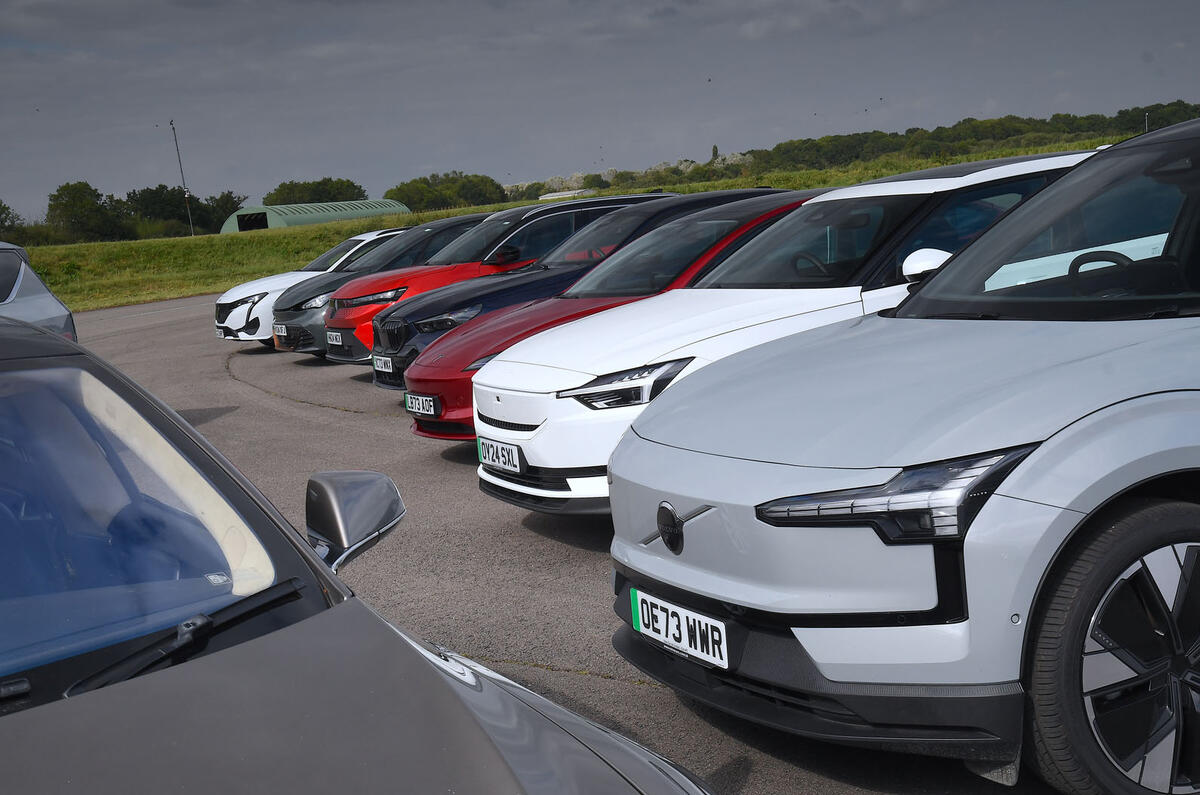The UK government is poised to relax its mandated electric car sales targets next week, in a bid to help manufacturers contend with the impact of the US's newly imposed car import tariffs.
According to The Telegraph, prime minister Keir Starmer will accelerate the changes that are being made to the framework of the UK's zero-emission vehicle (ZEV) mandate, following a consultation process with the industry in reaction to slower-than-expected uptake of EVs.
It's reported that the rules of the ZEV mandate will be changed next week to give manufacturers extra flexibilities, but the headline targets are expected to be unchanged. So manufacturers will still have to achieve a 28% EV sales mix in 2025, but other mechanisms for achieving compliance are likely to be integrated.
Figures released today (4 April) show that EVs accounted for just over 19% of car sales last month, more than eight percentage points behind the target for the year, and SMMT boss Mike Hawes said "the current regulatory regime is undeliverable" without proper support from the government.
The newly announced US tariffs have heightened the need for support, as all new cars exported from the UK to the US now attract a 25% import duty - a cost that the SMMT says "cannot be absorbed by manufacturers".
Last year, 27% of the cars exported from UK factories went to the US.
Starmer is attempting to strike a new trade deal with US president Donald Trump in a bid to neutralise the impact of the tariff, but ministers are drawing up a list of retaliatory measures the UK could put in place in the coming weeks if he is unsuccessful.
Transport secretary Heidi Alexander launched the consultation on the UK's transition to EVs late last year, in a bid to "restore clarity for vehicle manufacturers and the charging industry so that they have the confidence to invest in the UK in the long-term and drive growth in the UK automotive industry".
It came after business secretary Jonathan Reynolds acknowledged that the level of organic demand for EVs was falling short of the targets imposed by the previous Conservative government's ZEV mandate and pledged to work with the industry to find "options for a better way forward".
The consultation, which closed last month, sought feedback from the industry on how to update the framework of the ZEV mandate, which states that car makers must achieve an EV sales mix of 28% in 2025 – rising incrementally each year to 80% by 2030 – or face heavy fines for every non-electric car sold over the threshold.











Join the debate
Add your comment
We had Brexit for sovereignty, despite the harm. But now we are making changes asked for by a government on another continent, to alleviate harm.
The whole notion of all electric by 2030 or even 2035 is ridiculous. 40% of households have no home access to charging and where exactly is all of this extra electricity going to come from as we have yet to see a single windmill or solar panel from Milliblunders ridiculous scheme. EVs are NOT eco-friendly at all if you take into account the CO2 into the atmosphere to actually make them, child labour to mine the raw minerals that are extremely toxic. Added to the fact they are ridiculously expensive to buy and own as they lose 50% of their value in 18months or less.
But I agree with your sentiment, I can't see it happening.